Donald Trump’s tariffs a hot mess, but Anthony Albanese and Peter Dutton should keep calm

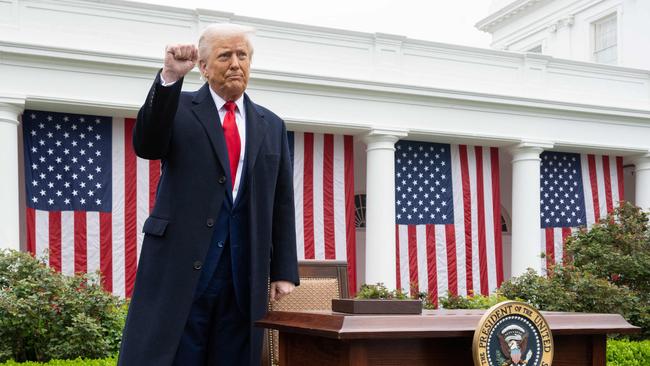
Donald Trump’s global tariffs are a hot mess, bad policy likely to produce bad outcomes. But Anthony Albanese and Peter Dutton should react calmly and fairly quietly.
So far, every time Donald Trump speaks of Australia he does so with some affection.
That’s a good thing. But Trump is inherently unstable and this could change very quickly.
Trump’s tariffs immediately wiped tens of billions of dollars off stockmarkets. The direct effects on Australia are nonetheless very small.
Certainly Australia has been treated as lightly by Trump’s moves as any nation. Therefore there is absolutely no upside in engaging in a contest about which Australian leaders can say the “toughest” things about Trump and his tariffs.
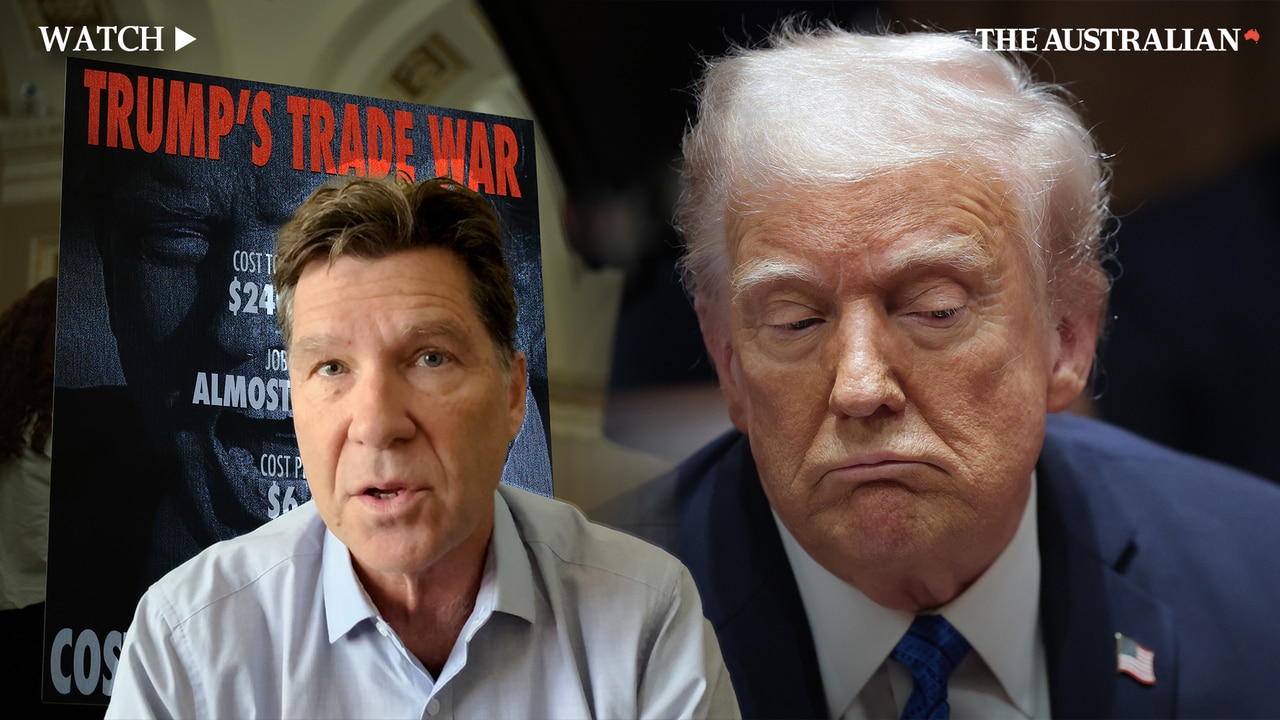
The second order effects on Australia, however, could be quite severe, economically and perhaps strategically.
These tariffs will destabilise international trade and make millions of people poorer.
Nonetheless, there’s an underlying truth to some of Trump’s trade grievances.
China basically sells whatever it produces, if necessary by subsidising the price. It sells massively more than it could if its producers followed normal market rules. The US is justified in taking some tariff action against China. Similarly, the European Union levies heavier protectionist measures against the US than the US does, pre-Trump, against the EU. So some kind of action there was justifiable.
But Trump has been harder on US allies such as Canada and Mexico than he has been on numerous US adversaries.
Apart from the relatively small impost on Australia, the Trump global tariffs hurt Australia’s interests in three ways.
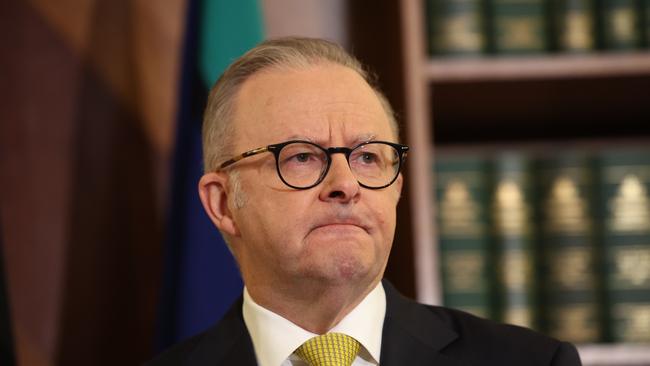
One, they will restrict and distort international trade, from which Australia has been a huge beneficiary. That must inevitably hurt global economic growth.
Two, they will particularly hurt nations critically important to us, especially in Southeast Asia.
Three, they destroy US soft power and to some extent its strategic credibility.
Australian leaders should keep their attention focused on the underlying, key, national interests for Australia in all this.
We have two overriding priorities: to keep the US-Australia alliance intact and as strong as possible under Trump, and also to keep the US intimately involved in the Indo-Pacific.
Those most disconcerted by Trump’s destructive actions regard such thinking as out of date. Nothing could be more wrong.
Trump has put a huge question mark over Washington’s commitment to its alliances.
But Australia is infinitely stronger even with a weakened US alliance than it would be without a US alliance. You don’t have to like Trump, or to think that the president after Trump will take us back to an alliance golden age, to realise that preserving the alliance is overwhelmingly in our interests.
The Albanese government is right not to retaliate with Australian tariffs on the US. They are pointless and would only damage Australia.
The Prime Minister was also well advised to be relatively low-key in response. Albanese and Dutton are both right to criticise and object to Trump’s actions. But their words should be moderate and measured.
Dutton is mistaken to talk about putting the defence relationship at the heart of an Australian response to the trade matters.
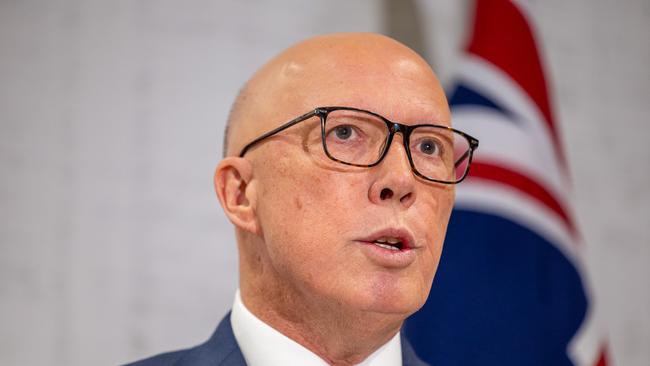
That’s dumb, and it’s a bit dangerous. The journalists at Dutton’s press conference immediately took that to mean Australia would be threatening to withdraw some element of defence co-operation as leverage to compel the Americans to make a deal with us.
That’s not what Dutton meant, but it’s an extremely dangerous conflation of different issues bound to lead to such misunderstanding, and with no credible upside.
One of the best things Trump said was that he’s open to negotiation. However, that’s also one of the worst things he said.
Trump has an addiction to endless negotiation, endless personalised drama. His addiction is not so much to the deal as to the process of negotiating the deal. He loves the drama of negotiation. That produces inherent instability.
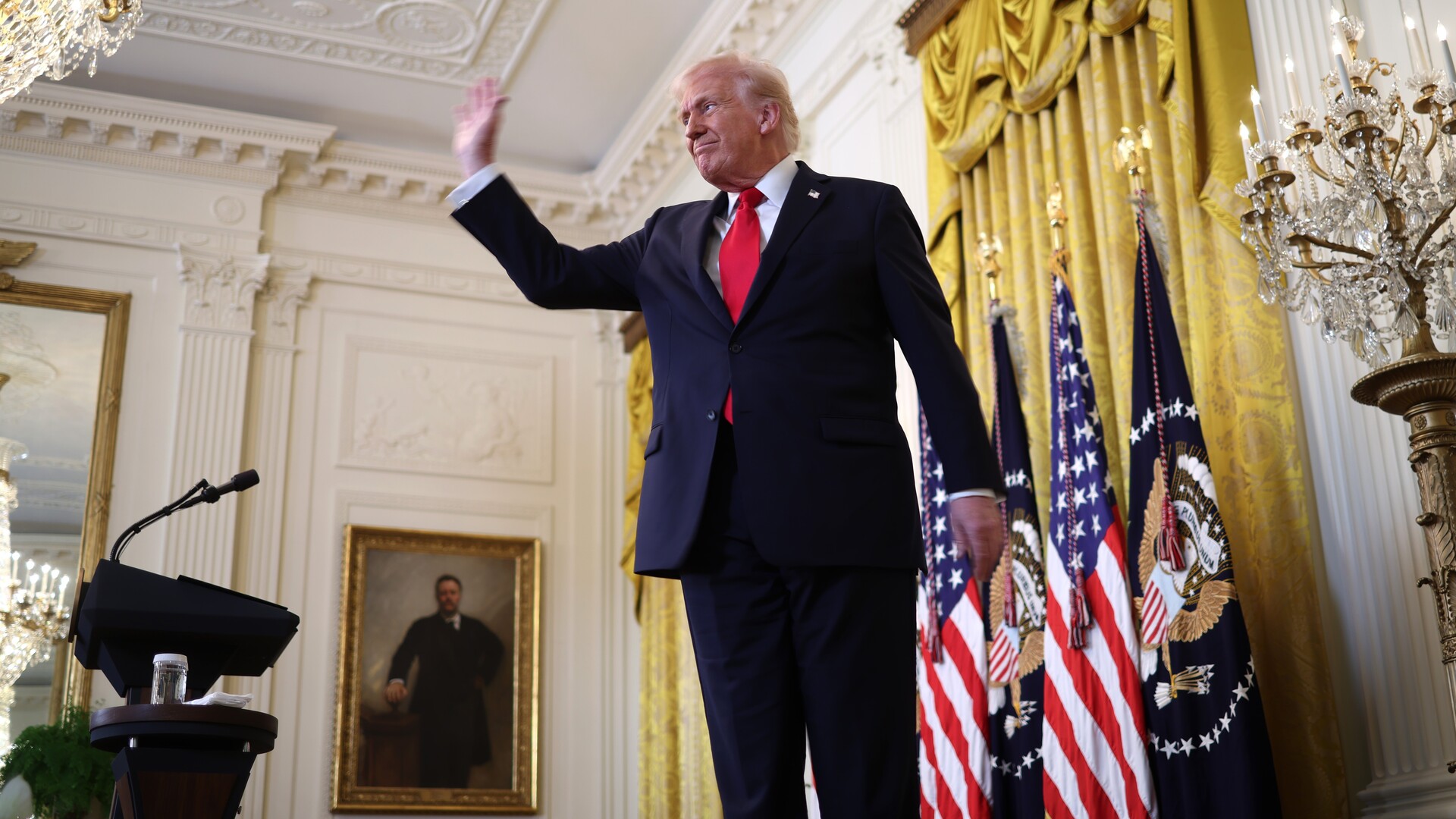
The single factor most likely to change Trump’s mind on tariffs is when they start to hurt the US economy, accelerate inflation and magnify the political backlash against him, which is already evident in his declining approval ratings.
These tariffs will do enormous harm. Trump has opened the way to negotiating them down. But what that can also mean is that Trump has no serious interest in getting to a stable deal. He will always be inclined to take new measures, to reopen any agreement, even one he made himself.
It was, after all, Trump who in his first term negotiated and concluded the trade deal with Canada, which he then blew up in his second term.
Trump hates stability. That’s one of his very worst attributes.
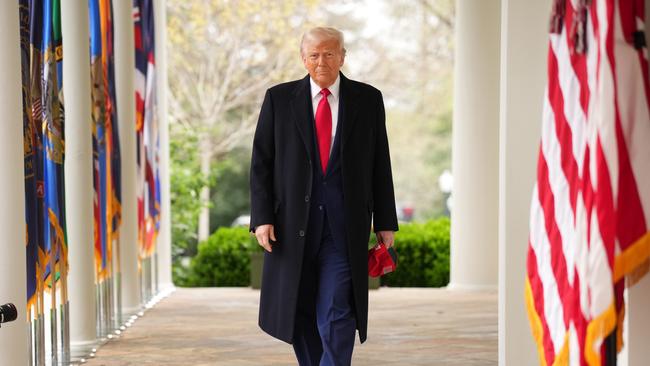
Australia is not without agency in its relationship with the US. But nothing Albanese or Dutton say will help in this moment. It is utterly absurd to attribute these tariffs to any failure from the Albanese government. Australia did as well or better than any other nation.
Similarly, it’s absurd, or at least completely improbable, that different Australian diplomacy could have produced a different result for Australia, which would have made us unique in the world.
Australia’s diplomacy at its best is not up to that. Neither is any other country’s.
Anything Australia does now, even actions such as taking the US to the World Trade Organisation, would be essentially symbolic, gesture politics. It might eventually be worth doing as a means of domestic political management, to show the government is doing something. But it’s kabuki theatre, not real stuff.
Dutton should immediately drop the idea of linking the security relationship with trade outcomes. It won’t work and the potential downside is enormous.
Commentators and ex-politicians are free to be as robust in commentary as they like. But the message for leaders is different: keep calm and carry on pursuing Australia’s key interests. Not very exciting, but certainly the best thing to do.





